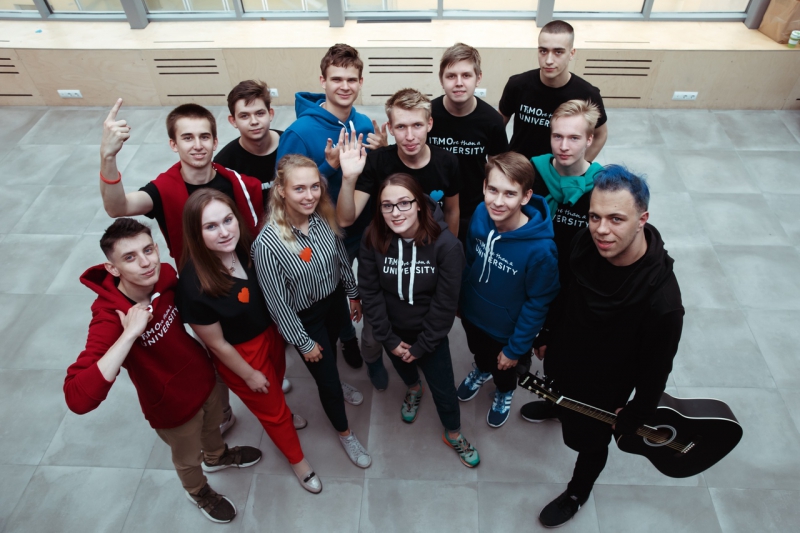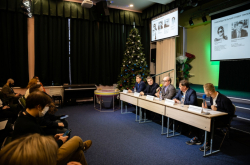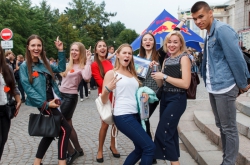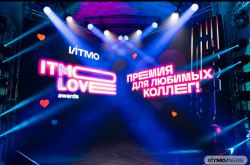Sofia Liberman (St. Petersburg)
Sofia Liberman is a participant of the FIRST Tech Challenge contest and team captain at numerous robotics competitions. Sofia also has the experience of working at one of Skolkovo’s resident companies, Motorika.
She enrolled in the Robotics program.
I hope that my future career will be related to biotechnology. Especially to bioprosthetics. I already have the experience of working at Motorika, where I develop 3D models of bionic traction prostheses.
There’s an interesting story behind how I got there. In my tenth grade, I already knew what I wanted, so I was looking for a way to developmy skill set. After studying the bioprosthetics market, I realized that it is mainly done by medical companies in Russia. I was advised to contact Motorika, which develops the engineering behind bioprostheses. I just called the sales department and said that I wanted to get an internship. They took my number but never called back. I had to call them again, and after that, they told me to come that very day.
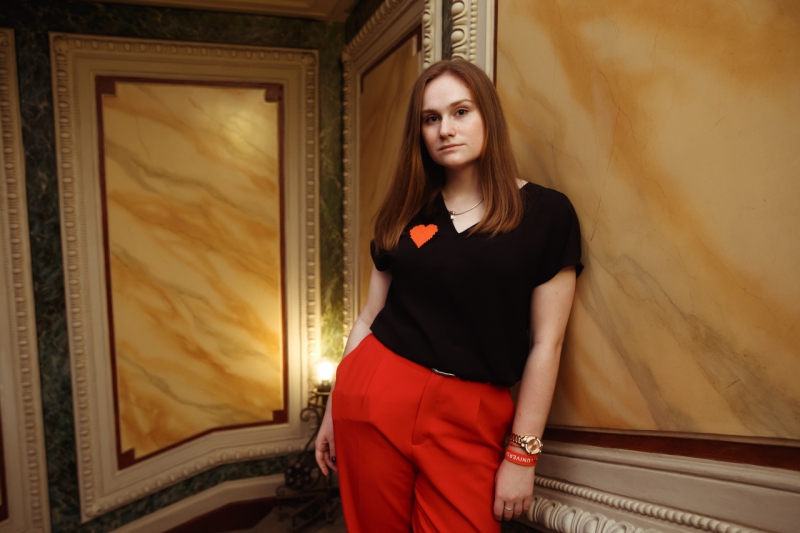
I left for Moscow for a month. I spent two weeks in the lab, assembling and doing hands-on learning. I also spent a week working in the electronics department.
Each university has its own view of robotics, but ITMO offers, in my opinion, the best combination of mechanics and programming. This is important for me, so I chose this particular university.
Vladimir Dmitriev (St. Petersburg)
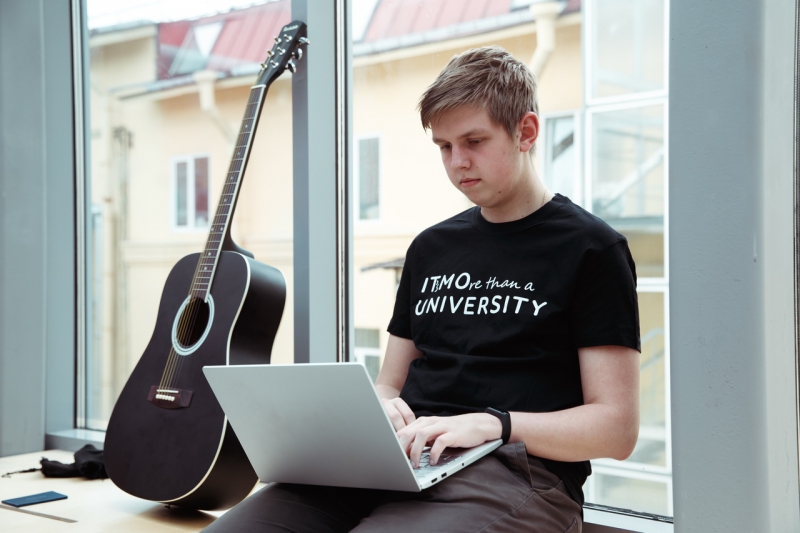
Vladimir’s record includes qualifying at the Russian stage and participating in the international stage of the RoboСup Junior competition held in 2018 in Canada and in July of 2019 in Australia in the Soccer Lightweight and Soccer Open tracks respectively. Neon, the team he assembled to participate in the Soccer Lightweight category, won the Russian stage and received high acclaim at the 2018 world competition in Canada.
He enrolled in the Robotics program.
I picked up robotics in my seventh grade which is also when I participated in my first contest. I didn’t win, of course, but gradually I began to gain knowledge and experience. Later I became a team captain and motivated others during our projects. Moreover, I am currently teaching robotics.
I’ve learned about ITMO from Daniil Nechaev, who is also involved in robotics and who won ITMO.STARS last year. I’ve heard many good things about the university which also famously holds high positions in international rankings.
As a university student, I certainly would like to keep on improving my knowledge and skills. This year, I will be participating in the children’s level for the last time and next year I will move into the adult one. I want to assemble my team from ITMO University students.
Neola Lisitsyna (Abakan)
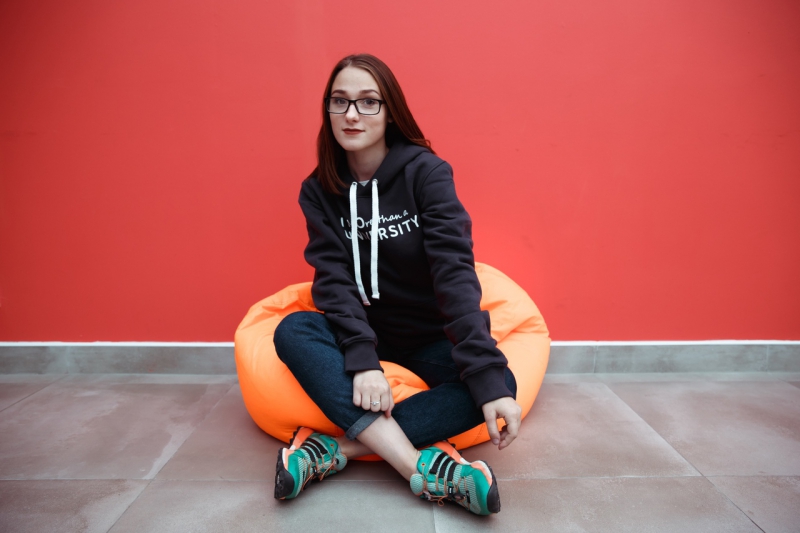
Neola developed a biometric security system based on saccadic (micro) movement of the eyes and stands out as a promising alternative to the existing biometric security systems.
She enrolled in the Neurotechnology and Programming program.
My dad is a programmer, so I had an interest in IT from a very young age. For example, I took courses in machine learning and bioinformatics at school. Even earlier I’d taken part in robotics competitions and attended various specialized clubs.
In ninth grade I visited an education center called Sirius where we worked with iTracking and other technologies. When I returned home I decided to create my own tracker. It would be foolish to abandon this idea, so I began to read a lot on the topic, looking for additional information. Sirius is a place where you are charged with energy. After the trip I firmly decided to focus on neurotechnology.
I read about different universities before applying to ITMO. Only ITMO University had the Neurotechnology program, so it was crucial for me to enroll there. Of course, till the very end of ITMO.STARS contest, I was afraid I would not pass, but everything worked out just fine.
Having studied for two years at a research-oriented school, I understand that I would not want to dedicate my life to science, working in a laboratory or writing articles. Working on my project I intended to turn it into a startup, and this experience made it clear that I was very interested in inventing, entrepreneurship and project promotion.
Pavel Zolotov (St. Petersburg)
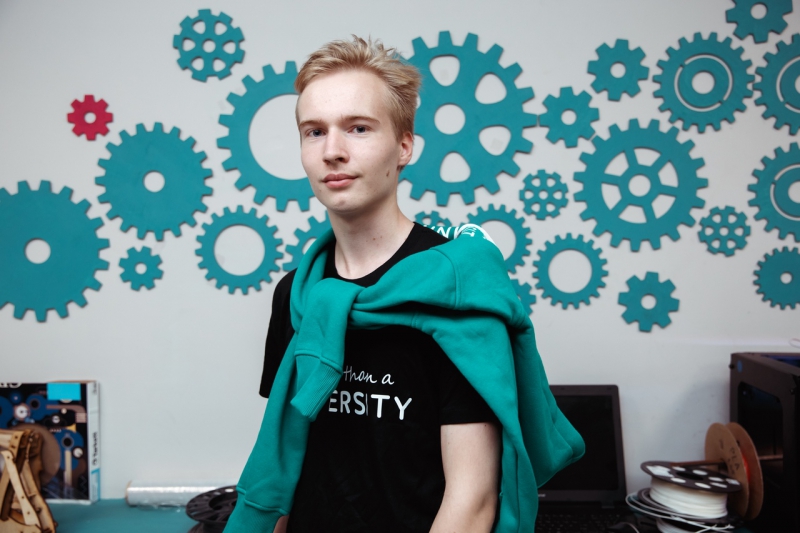
Pavel developed the application My Day, a modern planner available for devices in the Android operating system.
He enrolled in the Mobile and Network Technologies program.
I started working on my project in 2014. I studied various programming languages and mobile development, and tried to make my application user-friendly. Aside from the technical part, audience reception is also important for any product.
In my opinion, it is important for a programmer to possess not only technical knowledge but also communication skills in order to make a better-quality product. A programmer often cooperates with other people during the development process; creating a project without a team is virtually impossible.
I expect to obtain fundamental knowledge in the field of software development and mathematics during my studies at the university. In the future, it will allow me to launch my own project or to land a job at a major IT company.
To the future participants of the ITMO.STARS contest, I wish confidence. After all, it’s stupid not to cease the opportunities that you are given.
Gleb Novikov (Chelyabinsk)
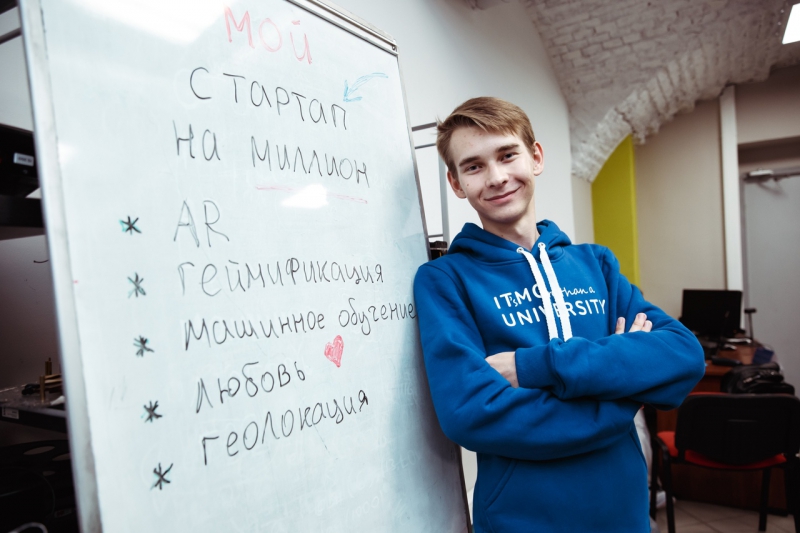
In development since 2017, Gleb’s project Stalker GO is a mobile app based on the S.T.A.L.K.E.R video game universe. Its underlying concept has players explore their surroundings to find artifacts using cues indicative of different anomalies.
He enrolled in the Mobile and Network Technologies program.
I presented two projects at the competition, each in development for several years. I found out about the ITMO.STARS program around two days before the end of the competition, and managed to submit an application 40 minutes before the deadline. I sent my portfolio and went to bed. It was a big surprise when I got a call inviting me for an interview.
For those who are afraid to participate in competitions and doubt their abilities, I wish to never give up their work, even if something goes wrong. Failure has always been the most motivational factor for me. For instance, shortly before participating in ITMO.STARS, I had a major setback at Samsung IT School, where I did not manage to qualify for the finals. But a few weeks later we talked about this project with the representatives of ITMO University.
I plan to expand my knowledge and skills at ITMO University. For example, the ITMO DigiEduHack hackathon will be held soon and several tracks have been announced. I plan to choose the “AR and VR in Education” track, because it is the closest one to my interests.
Polina Pereshivkina (Moscow)
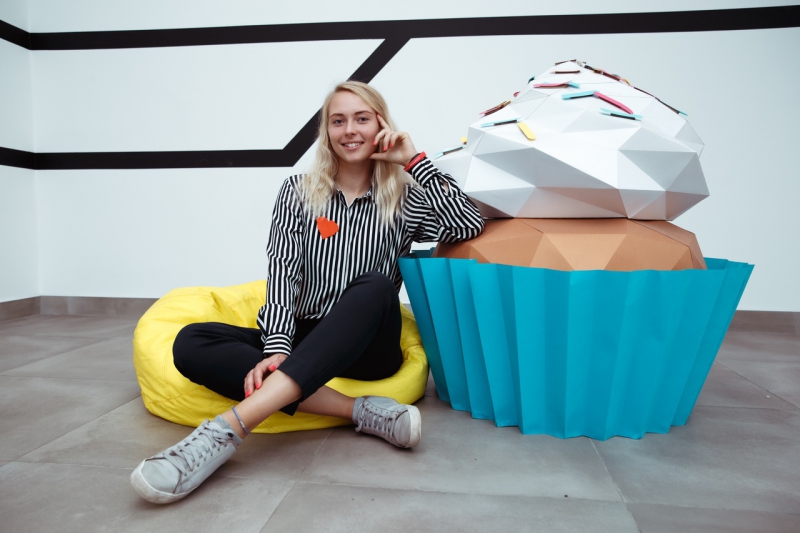
Titled “Dream House. The Psychology of Color”, Polina’s work explores the impact left by color on people’s perceptions and whether it is possible to use it for accessing the brain’s neural connections.
She enrolled in the Neurotechnology and Programming program.
I looked through many university rankings, both Russian and international. ITMO University holds high positions in quite a few of them. More than that, I was attracted by the fact that a lot of young specialists work here. This is important because programming must keep up with the times.
ITMO University is also the only university that offers a program in neurotechnology. And on top of it, I really love St. Petersburg. Apart from studying, I am professionally involved in sailing, and my Krestovsky Island yacht club is located here. All these factors influenced my choice of a university.
I believe that if a person develops in several areas at once, then all the accumulated knowledge will be useful in the future anyway. The more you know, the more effectively you come up with something new. Your brain cannot develop in one direction only.
Alexander Mamaev (Chelyabinsk)
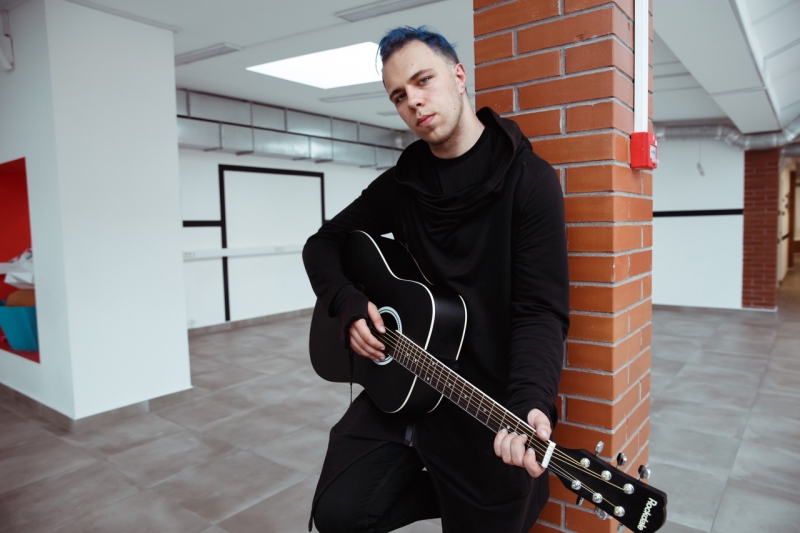
Alexander developed a neural network-based app enabling gamified interactive tours of the Hermitage Museum. The service provides a user with a set of emojis, using which they have to guess an artwork and locate it in the museum, after which they can learn more about their find in the popular Story format as seen on numerous social media.
He enrolled in the Programming in Information and Communication Systems program.
The project I presented at the ITMO.STARS contest was developed at the VK hackathon. It took place at the Hermitage, and we wanted to do something cool for the museum. I am working in the field of machine learning, which is related to image recognition. It was interesting to create a project that made it possible to recognize pictures. As a result, it turned out to have very peculiar mechanics.
My passion for machine learning began in eighth grade. Back then, it was just gaining momentum. Prisma and other companies emerged making this topic really interesting for me. I began attending meetings and took machine learning courses at Coursera, then gradually started participating in various competitions, won a Sberbank hackathon, and took part in many others. It turned out to be my professional activity.
I finished school in Moscow, stayed there for a year working at Tinkoff Bank where I also took part in the development of the voice assistant named Oleg. Now I work at VK.
The field I work in is not only practice-oriented, like web design, but it also has a scientific component to it. There is a whole section of advanced mathematics that I do not know yet. I went to university specifically for this fundamental knowledge. I am interested in science.
Arthur Koltsov (Volgograd)
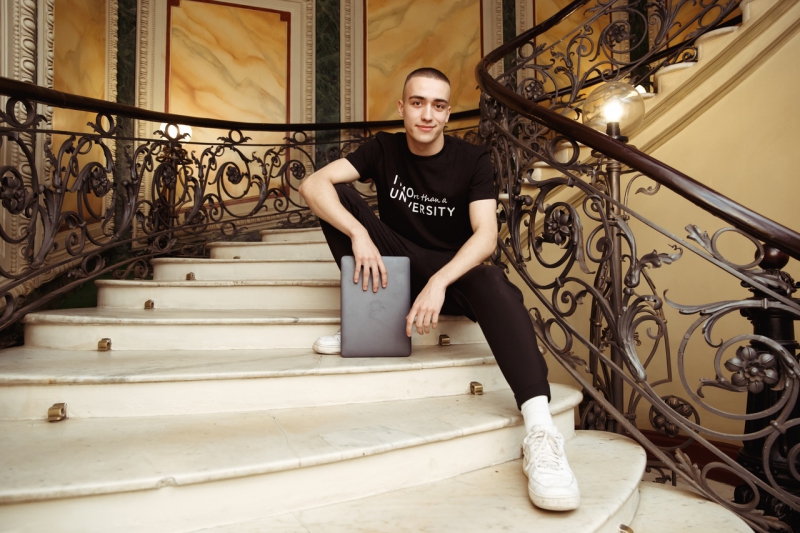
Arthur organized his own recording studio Hilair, joining forces with two of his classmates. The studio has already secured several commissions to create promotional videos for companies such as Dodo Pizza, events agency Pushka, and the OldSide loft. Parallel to developing his recording studio project, Artur works as an ad targeting specialist at a marketing agency, where he oversees more than 20 ad campaigns at a number of Russian cities.
He enrolled in the Technological Innovations Management program.
I do advertising and my projects are related to targeted advertising in social networks, drawing up marketing strategies and more. I presented my own video studio at the contest, which my friends and I organized together. As for the studio, we have already managed to work with such large brands as Dodo Pizza, Amway and other companies both in Volgograd and beyond.
I am sure that university environment is ideal for setting up a business and developing new projects. Here I can find specialists who can help me with making a product, and I, in turn, can promote it on the market.
First of all, your university can give you some good connections. Furthermore, I expect to get managerial skills here. My program involves training in management, entrepreneurial culture and also deals with the issue of building a team and organizing interaction with people. For me personally, these skills are relevant.
Peter Volnov (Moscow)
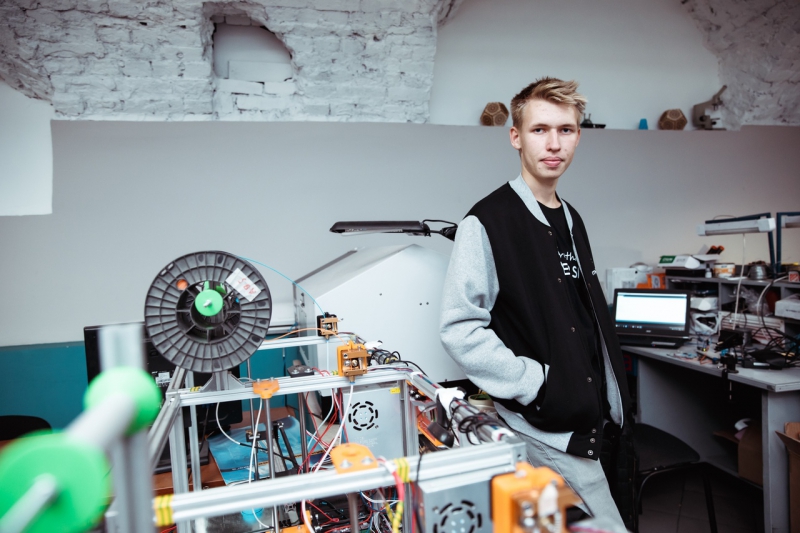
Peter submitted a number of apps including a VK Mini Apps platform-based Telegram client that allows users to view interesting content from different communities in one feed in the style of VK social network’s interface. After its official app catalog release, his app, Terald, managed to gather over 50,000 unique users in as little as four days.
He enrolled in the Informatics and Programming program.
Practical skills are relatively easy to gain, so what I expect to gain at the university is more fundamental knowledge. For instance, when I was into machine learning I felt a lack of a mathematical background in some areas. More than a half of my program’s courses are related to mathematics, so I hope to fill in the gaps in my knowledge. We will also be taught practical programming in Java, which is very cool because 60% of all projects are connected with this language, and I haven’t worked with it enough.
I would like to make a cool startup in the future. Startups are fascinating. When you make something and people really use it, it is very inspiring. We continue our work on Terald. Apart from that, we created an AI-based system for movie recommendations and a number of other projects. Everything is great, people use it, like it, but monetization is not so simple yet. I hope that some of the projects will become profitable in the future.
In my opinion, the main quality for a startup is self-discipline. This becomes crucial when you start doing solo projects. You always have to do multiple things at the same time, there are no strict deadlines, therefore with no discipline there is a great risk of dropping the project.
Alexey Zotov (Saratov)
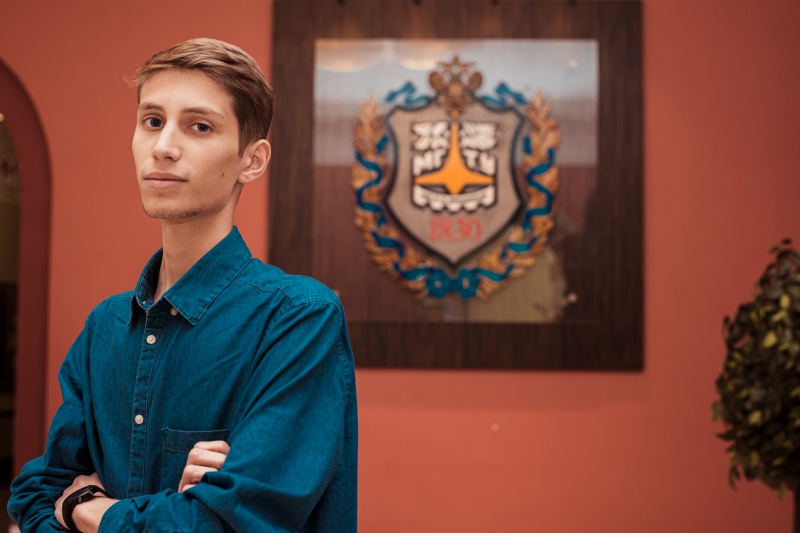
Alexey created a mobile solution for training for the English language Unified State Exam (USE) on the Android platform.
Alexey enrolled into the Computer Systems, Complexes and Networks program.
I worked on my project from August 2018 to February 2019. Before that, I’d studied the necessary development tools for another two months. I decided to work on the project because I am interested in online education and I like creating products that can help people learn something new. Furthermore, there were no competitors in that particular market niche, which made it possible to create something new. Over the course of the work I gained very valuable experience in software development, and also tried my hand in testing and design.
In my opinion, ITMO.STARS can help evaluate your real knowledge specifically in the subject area of your project. In general, this competition is a wonderful opportunity and a “second chance” for graduates who have not gotten enough points at their USE.
If you are planning to participate in the competition but are not sure about your abilities, I’d advise you to get feedback on your project from more experienced people or from your users (if it is an information product). This will help you find areas you need to improve to be sure of the project’s quality.
Timofey Meshanov (St. Petersburg)
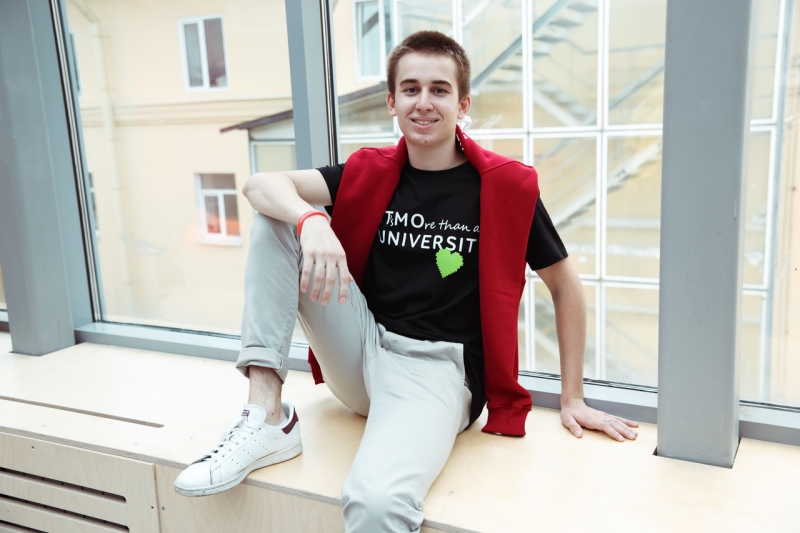
Timofey authored a chemical method for preventing the corrosion of metal parts in an aqueous medium without lifting it to the surface. For this, he developed a concept for an underwater robot that would conduct all the necessary operations.
He enrolled in the Biotechnologies program
I have been fond of biotechnology for a long time. I began to learn more about this field in eighth grade when I took a career test. I immediately realized that I really like everything about it. Besides, since my childhood I have been always interested in learning the composition of certain products, analyzing their taste.
I knew about ITMO University since ninth grade, when I first visited it during Open Days. At that moment I realized that I wanted to study there. I liked the atmosphere, the attitude towards the students and the systematic nature of studies.
At the university I will not stop working on the projects I already have. I expect to gain more knowledge in the field of science. Apart from biotechnology I am also very interested in space. And I think that these areas can be combined.
For those who want to participate in the competition but are afraid of doing it for various reasons, I would advise to be smarter. For example, it won’t hurt to attach additional certificates and letters of recommendation to your application, as I did with mine. And finally, when you are writing a motivation letter, do not try to copy samples from the internet. It’s better to write on your own, even if it doesn’t sound particularly eloquent. The main thing is to show your thoughts.
Nikita Meshcheryakov (Novosibirsk)
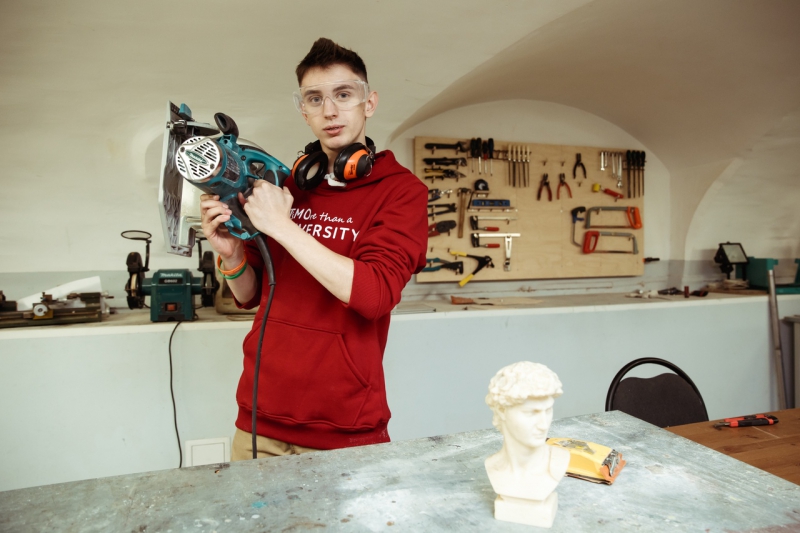
Nikita submitted the project Safety Every Day, proposing solutions for the manufacturing and distribution of safe and stylish reflector-equipped workwear.
After winning the ITMO.STARS contest he enrolled in ITMO University’s Business Informatics program.
The project I presented at ITMO.STARS is the final phase of my work. Generally speaking, I have been working in a design studio for about seven years, during which we have created various projects, including social ones. Thanks to winning a professional competition, we were able to purchase the necessary equipment, which allowed us to start creating large, serious collections. This is not a theoretical project or the one that is for exhibitions only. We have created clothes that people can actually wear in their everyday life. The costumes are equipped with reflective elements, but at the same time they do not look like some work uniform. I curated this project.
In my opinion, a person who wants to succeed should seize all opportunities out there. I don’t have a special motivational story, I just understand that if I fail and don’t get up to continue with what I’ve started, no one will do it for me.
As for the university, I am waiting for the start of specialization courses, especially subjects related to economics and management. I want to learn how to run my own business, as well as gain knowledge in accounting and auditing. And in the future, I would like to either start my own company or become a professional analyst.
Artem Zaglubotsky (St. Petersburg)
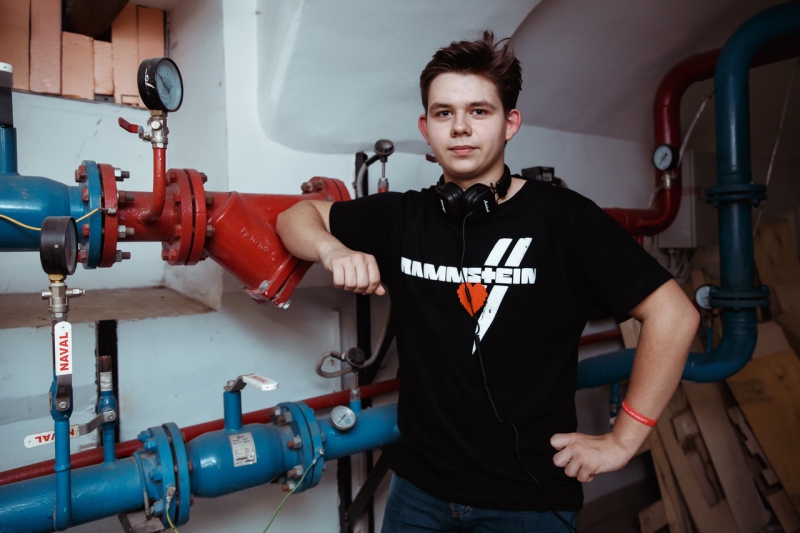
Artem is a prize winner of numerous academic competitions and winner of CTF-styled team competitions in computer security in 2018 and 2019. Last year, being part of a two-person team, he won the prestigious SPb School CTF-2018 competition.
He enrolled in the Computer System Information Security program.
I think that the Unified State Examination is not an absolute indicator of knowledge, it just evens out the results allowing you to compare students to a certain extent. Of course, there are various factors affecting the outcome: exam nerves, stupid mistakes, and knowledge gaps in some areas.
From here on out I plan to focus on the topic of smart cities and present the first test project at the Congress of Young Scientists contest. We plan to connect a couple of devices, make them transmit data and try to control them.
As for the future, I would like to become an entrepreneur. I’m not sure that I could work as a developer on one topic all the time. It is important for me to be able to change projects. Any entrepreneurial activity has its risks, which is the most interesting part. You never know if a project makes a hit.
To my mind, hard skills are paramount for an entrepreneur. You won’t get anywhere without them. In fact, you will not even assemble a team for your project. Of course, enthusiasm is also important. And finally, you must be able to take responsibility for the project. If you feel that the project is failing, you must be able to pull the plug in time and change the vector of your work.
Yuri Babalin (St. Petersburg)
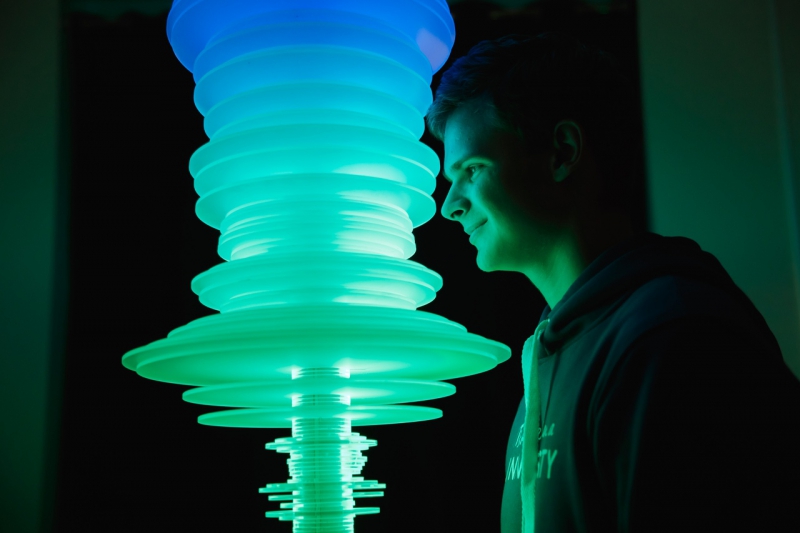
Yuri showcased his original code for enabling smooth interaction between different devices in a smart house system.
He enrolled into the System and Application Software program.
I have been keen on programming since ninth grade. That winter my friend suggested going to the training center in Pushkin where you can program microcontrollers and do interesting stuff with them. I got carried away with this, and when the spring came we participated in our first competitions, taking first places.
Then we took part in tournaments of a higher level. For instance, we were invited to qualify for the WorldSkills Russia competition. In case of success we were to go to the finals. We showed that, despite the fact that we can’t enter the main categories by age, we can do the same things that second- and third-year university students do.
ITMO University, in my opinion, is one of the best universities for programmers. Here I plan to get a good professional background, and, of course, continue developing my project. I hope it will be possible to connect Alisa to a smart home system.
Sofia Vershinina (Pskov)
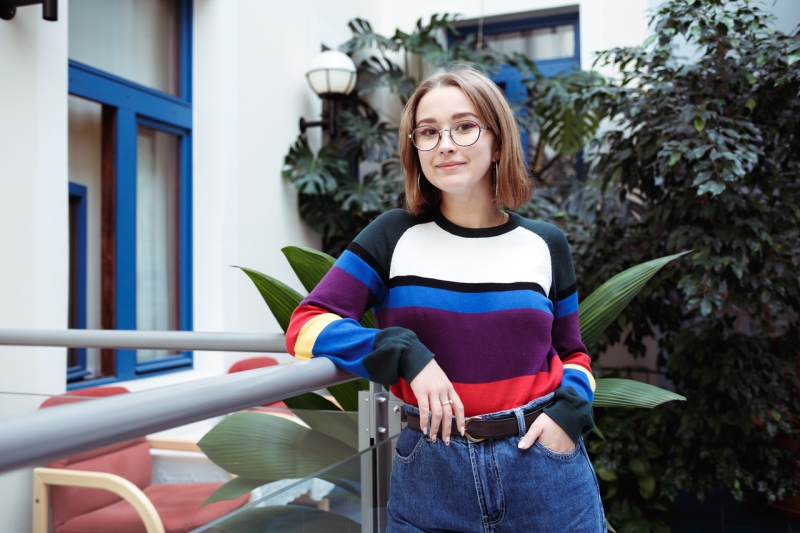
Sofia carried out work on the study of nutrients and oil products in the Pskov-Peipsi reservoir. She conducted a project studying biogenic substances and oil derivatives in the waters of Lake Peipus. Her work was recognized as one of the best at the national forum for young scientists Step Into the Future. She will be presenting her research at the annual Stockholm International Youth Science Seminar (SIYSS).
She enrolled into the Bioengineering program
I began working on my project in the eighth grade when we started chemistry. My teacher noticed my interest in this subject and suggested I do scientific research as an extracurricular activity. Such classes essentially give you knowledge of elementary techniques, but when it came to choosing a topic, I had no doubt that I would like to analyze the quality of water: water and its level of pollution affect the quality of our lives.
I had a lot of criteria of choosing a university and ITMO turned out to be just perfect. Here, students have the opportunity to express their creative side, partake in internships and exchange programs, connect with like-minded people, and, of course, engage in scientific activities in any field of interest, already in their first year there.
The most important thing is that it is not just pretty words on the admission campaign booklet, it is reality which still keeps me thrilled. As for the further work, I would really like to try myself at cell engineering and see what comes out of it.
Translated by Pavel Vorobyev
